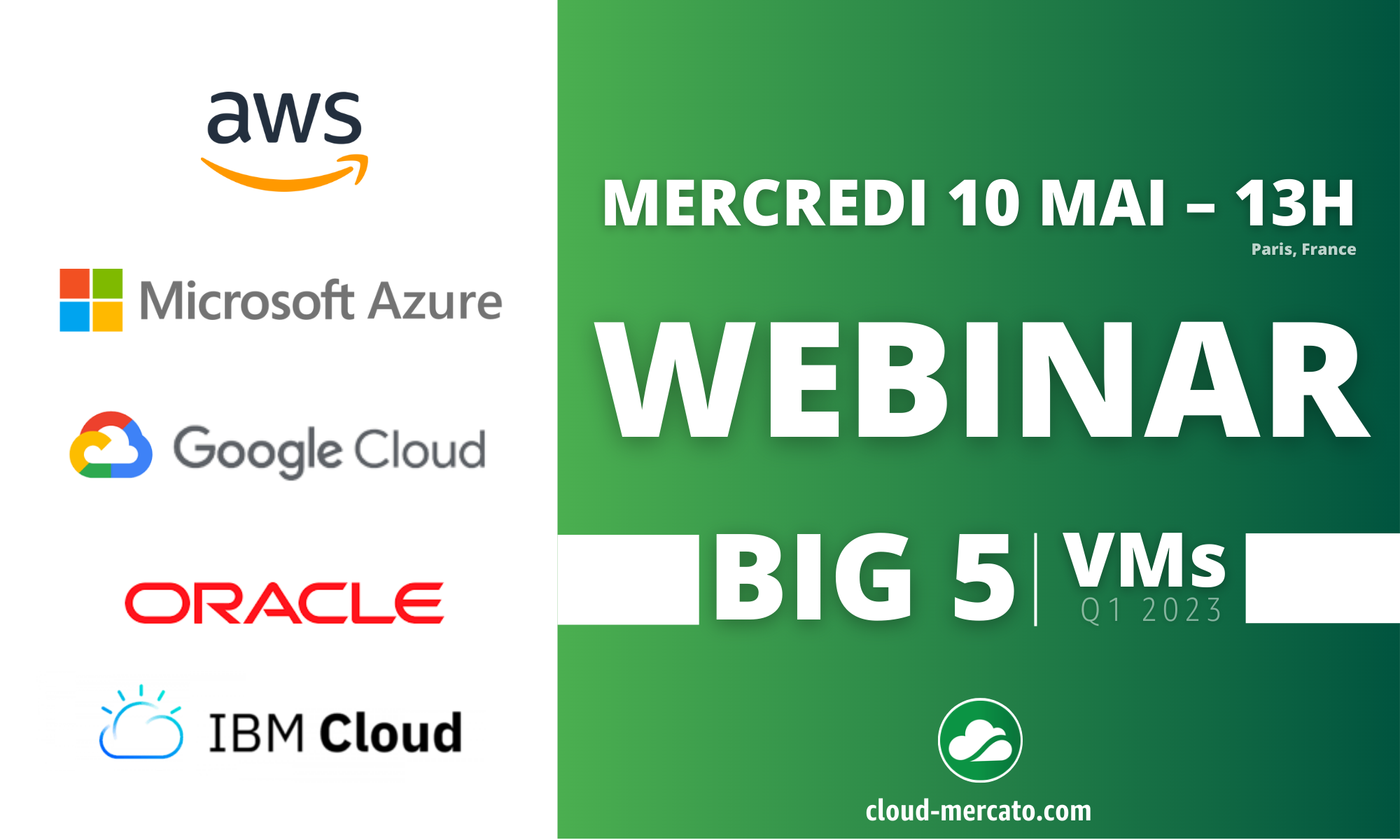AWS vs Azure vs Google vs IBM vs Oracle - VMs Q2 2023
Go back to list
Around 70% of the cloud market is owned the Big 5 US cloud providers. From the pioneers to the early challengers, several major American tech companies dominate the market under the term of "Hyperscalers" which could be described by:
- Wide range of services
- Global footprint
- Ability to scale with customers' requirements
This study aims to evaluate the Infrastructure-as-a-Service (IaaS) from the Big 5, especially General Purpose Virtual Machines, Block Storage and Object Storage. It's important to note that each cloud provider has its own target audience and use cases, however, the infrastructure services are quite similar across vendors making them comparable in term of performance and price.
Virtual Machines
To create a fair benchmark, we have selected all types of virtual machines regardless of their hardware vendor and architecture. The only one requirement being to have 8 CPUs and 32GB of RAM in specification. Here's some notes about the different series of VM used in this study.
- Dasv5: AMD's 3rd Generation EPYCTM 7763v processor in a multi-threaded configuration with up to 256 MB L3 cache
- Dv5: 3rd Generation Intel® Xeon® Platinum 8370C (Ice Lake) processor in a hyper threaded configuration
- Dpsv5: Ampere® Altra® Arm-based processor operating at 3.0 GHz, which provides an entire physical core for each virtual machine vCPU
Block Storage
As a virtualization of hard drive and similar technologies, the main storage solution for cloud consumers is Block Storage. We analyzed different storage class in term of performance through IOPS and thoughput.
Object Storage
We compared the Standard Object Storage offer from the major 5 through its interaction with the compute and their pricing. For the pricing, as complex scenarii can be implemented, a cost estimator helps to construct your own usage.




